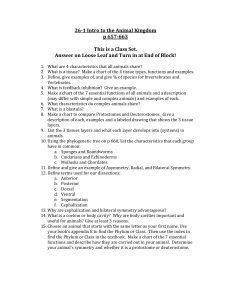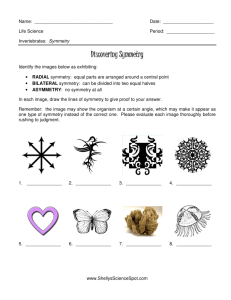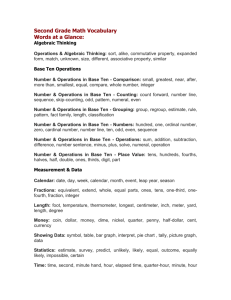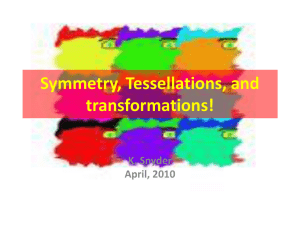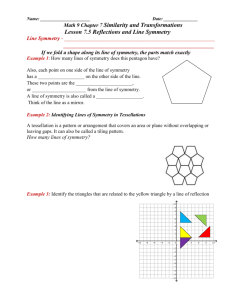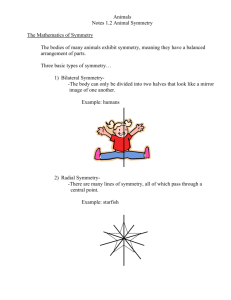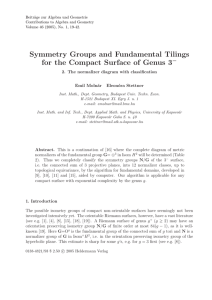Tessellations PowerPoint
advertisement
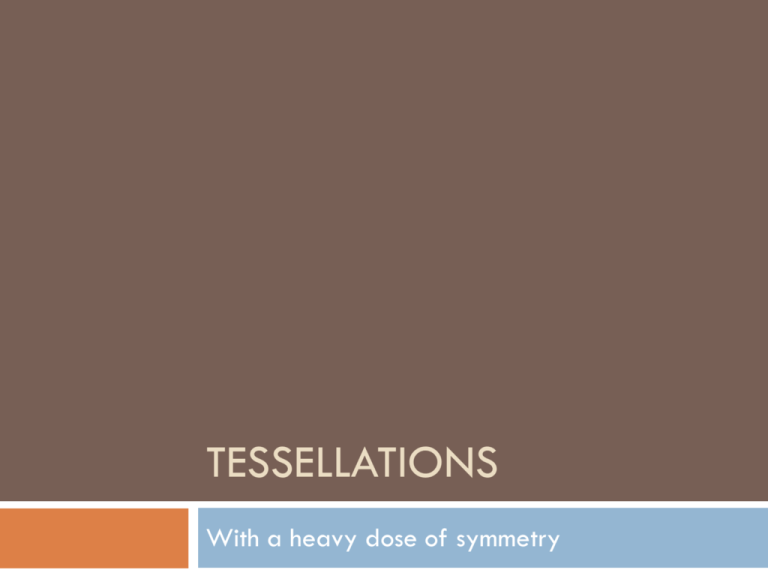
TESSELLATIONS With a heavy dose of symmetry Symmetry The terms symmetry has many meanings. In The Last Supper, symmetry is about balance in that the disciples are grouped in four groups of three, with two groups on either side of the central figure of Christ. A human body has symmetry because a vertical line drawn through the head and navel divides the body into two (nearly) identical parts. Symmetry can also refer to a repetition of patterns. Three Types of Symmetries Reflection symmetry – An object remains unchanged when reflected across a straight line. Rotation symmetry – An object remains unchanged when rotated through some angle about a point. Translation symmetry – A pattern remains the same when shifted in a straight line (of any direction). Symmetry in Art Gustave Dore’s engraving The Vision of the Empyrean from 1870. Shows an amazing illustration of rotational symmetry. Victor Vasarely’s Supernovae started symmetric but the slight deviations from symmetry make the work even more powerful. M.C. Escher If anyone has ever heard of tessellations, also known as tilings, they have heard of the master M.C. Escher. Mauritis Cornelis Escher (1898-1972) was born in The Netherlands and is one of the most famous graphic artists of all time. Made over 448 lithographs, woodcuts and wood engravings, and over 2000 drawings and sketches. He was left-handed. Relativity, 19?? Belvedere, 1958 Encounter, 1944 Reptiles, 1943 Day and Night, 1938 Stars, 1948 Circle Limit IV, 1960 Drawing Hands, 1948 Eye, 1946 Hand with Reflecting Sphere Tessellations A form of art called tilings (tessellations) involves covering a flat area, such as a floor or wall, with geometric shapes. Tilings usually have regular or symmetric patterns. Specifically, a tessellation is an arrangement of polygons that interlock perfectly with no overlapping. Our tessellations will all be square based, with a bit of flourish to make them “better” looking.

